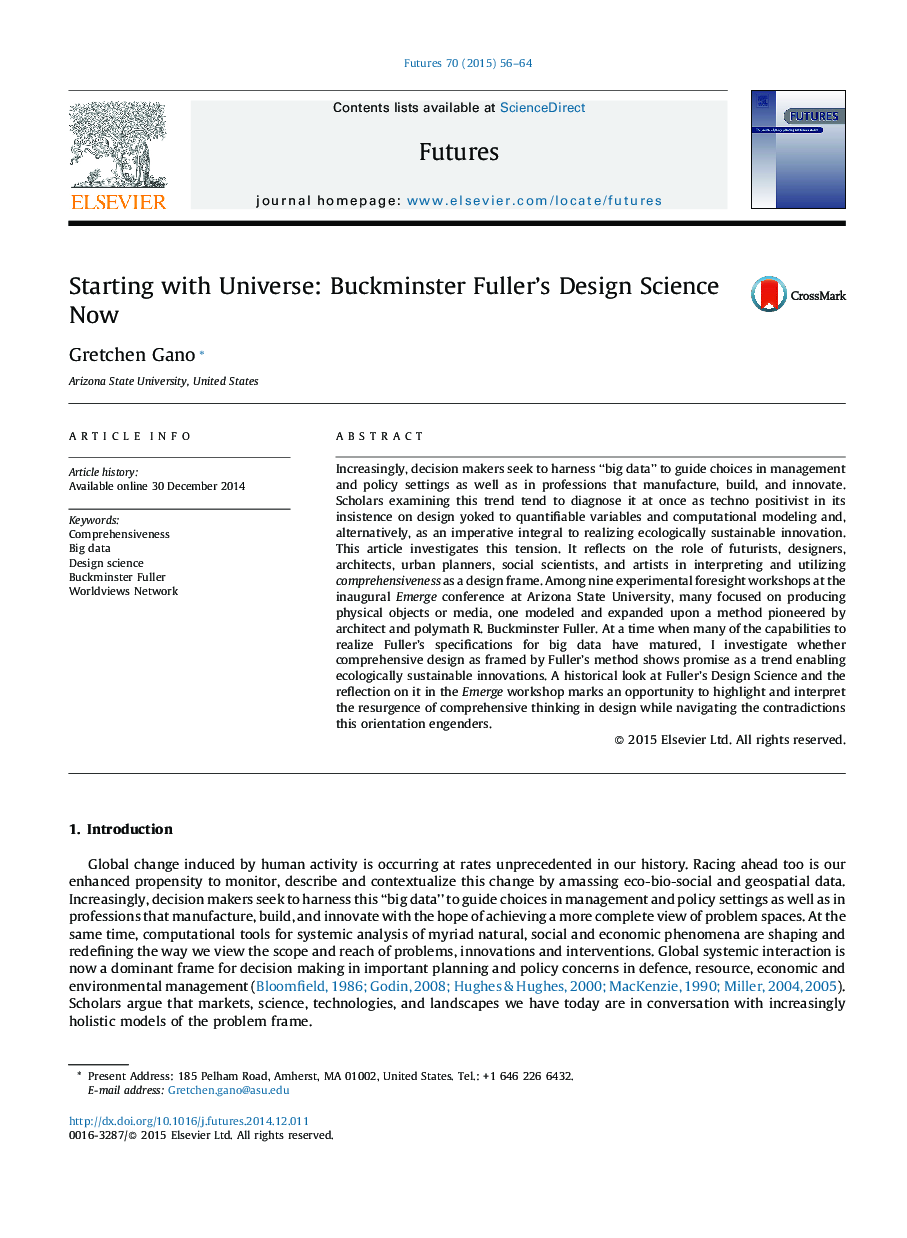| Article ID | Journal | Published Year | Pages | File Type |
|---|---|---|---|---|
| 1015457 | Futures | 2015 | 9 Pages |
•Comprehensiveness is an influential idea in design.•The Emerge workshop, “Starting from Universe: Design Science Now” enacted aspects of “Design Science”.•Buckminster Fuller's Design Science is oriented toward comprehensiveness.•Fuller's work reminds contemporary designers of the role for reflexive participation as a part of the design process.
Increasingly, decision makers seek to harness “big data” to guide choices in management and policy settings as well as in professions that manufacture, build, and innovate. Scholars examining this trend tend to diagnose it at once as techno positivist in its insistence on design yoked to quantifiable variables and computational modeling and, alternatively, as an imperative integral to realizing ecologically sustainable innovation. This article investigates this tension. It reflects on the role of futurists, designers, architects, urban planners, social scientists, and artists in interpreting and utilizing comprehensiveness as a design frame. Among nine experimental foresight workshops at the inaugural Emerge conference at Arizona State University, many focused on producing physical objects or media, one modeled and expanded upon a method pioneered by architect and polymath R. Buckminster Fuller. At a time when many of the capabilities to realize Fuller's specifications for big data have matured, I investigate whether comprehensive design as framed by Fuller's method shows promise as a trend enabling ecologically sustainable innovations. A historical look at Fuller's Design Science and the reflection on it in the Emerge workshop marks an opportunity to highlight and interpret the resurgence of comprehensive thinking in design while navigating the contradictions this orientation engenders.
